Bali is a fascinating destination which delivers all its promises. The island has the amazing diversity which caters to various needs of its visitors: nature lovers, culture oriented and water sports enthusiasts will find here adventures suiting their needs with activities like surfing, volcano hiking or trekking the mountains and jungles. The travellers who prefer to spend their time slow can opt for full relaxation on the beach or try out yoga and meditation classes as well as many spas which will take good care for soul and body. Those who want to explore Indonesian culture will be glad to discover Bali’s rich heritage which is deeply connected with Hindu religion predominant on the island. One can visit historical Hindu temples, royal palaces, listen to the local music and admire local dances, the friendly locals are also happy to say more about their life in Bali and Indonesia in general so the cultural experience will be even more complete.
Check out this post to see our Balinese itinerary:
Our Balinese culture-packed itinerary. Things to see and do in Bali.
When travelling around Bali one can notice many artisanal shops and workshops where the locals manufacture various figurines, furniture and home accessories. If you will travel a bit further from the main tourist areas you will see places where the objects found in the quaint tourist boutiques are actually crafted.
Bali amazes with its artisanal production, especially given the fact that the island is relatively small. The variety is also impressive: home accessories and furniture made of wood, various food products including snacks made of local fruits and Indonesian coffee, artisanal silver jewelry and many other items – one can find ideal souvenirs for themselves, friends and family which suits every taste and budget.
Where to buy Balinese souvenirs?
If you like planning your shopping in advance to avoid rushed decisions and you want to make sure to find good quality and authentic gifts, check out this post for some ideas and save it for later so you can access it quick when browsing colorful artisanal markets spread all around Bali.
Typically for Asian destinations, you will find a very good souvenir offer on artisanal and food markets. In Bali you will also find many small boutiques and regular shopping centers which are well equipped with local products.
If you plan to stay in Ubud and in the coast, I suggest making your major souvenir shopping in Ubud. The town is known for its quaint artisanal boutiques, antique stores and food specialty shops so you can really enjoy an impressive selection. Not every store has items of good quality, so it’s wise to check out few places to have a comparison. In most of the markets and majority of shops in Ubud you need to negotiate the prices, again in this case, go to few places, keep smiling and don’t show you are firm on making a purchase, and see how this attitude can surprise you with the level of the discount.
If you want to shop in the coast, be prepared that in majority of places prices will be higher. We have spent one week in Nusa Dua area and the quality souvenirs could be found in bigger shopping centers which are well stocked with a variety of Balinese goods. However, prices are fixed and (often significantly) higher than in Ubud. Nonetheless, if you don’t want to visit many shops nor haggle or don’t care to pay more and want to buy different types of items during one visit then purchasing locally made souvenirs of reasonable quality in such centers can be an optimal choice.
Traditional and authentic Balinese souvenirs:
- Batik clothes and accessories
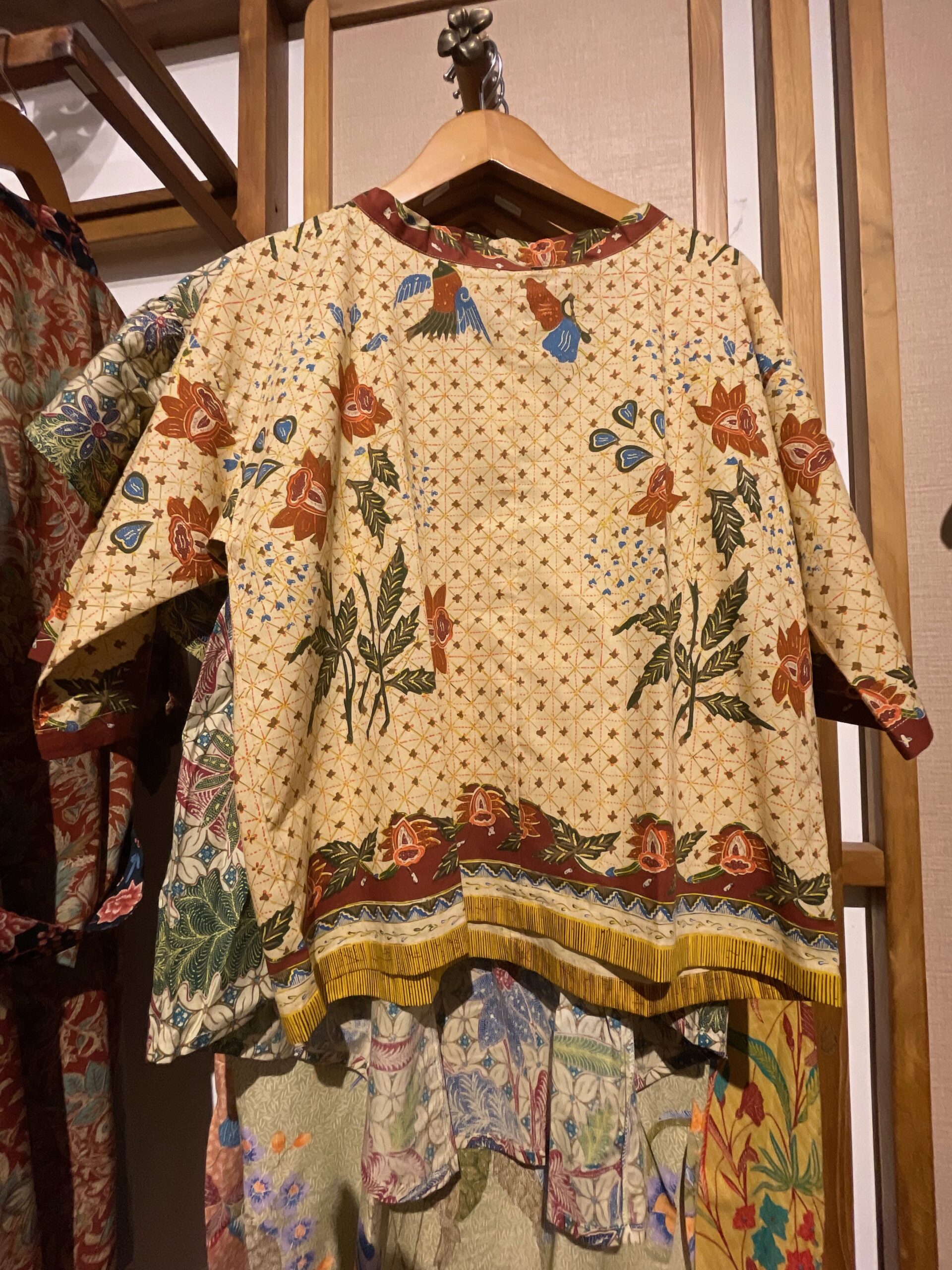 |
Batik is a traditional Indonesian art form where the beautiful designs on fabric are created on fabric using wax resist dyeing technique. The process starts with a hot wax applied on a piece of cloth, usually cotton or silk. The wax creates a barrier that prevents dye from penetrating the covered areas of the fabric. Artisans then apply dye to the fabric, which seeps into the uncovered areas, creating colorful patterns and designs. This procedure can be repeated multiple times, with wax being applied and dye being added in layers to create complex and vibrant designs. After the final dyeing, the wax is removed by boiling or scraping the fabric, revealing the intricate patterns beneath.
In Bali you will find plenty of shops which sell textile with beautiful batik textiles. You can opt for shirts, dresses, skirts or smaller accessories as pouches, wallets or hair bands. There is also a big variety of home accessories such as tablecloths, aprons, book covers to name just few example of an impressive variety of items.
Where to get it?
You will find plenty of batik textiles in many boutiques in Ubud as well as in big shopping centers in the coastal area. Check well the quality of the items you want to purchase and ask about the type of the fabric as well as care instructions to preserve the color during washing.
2. Wooden kitchen utensils
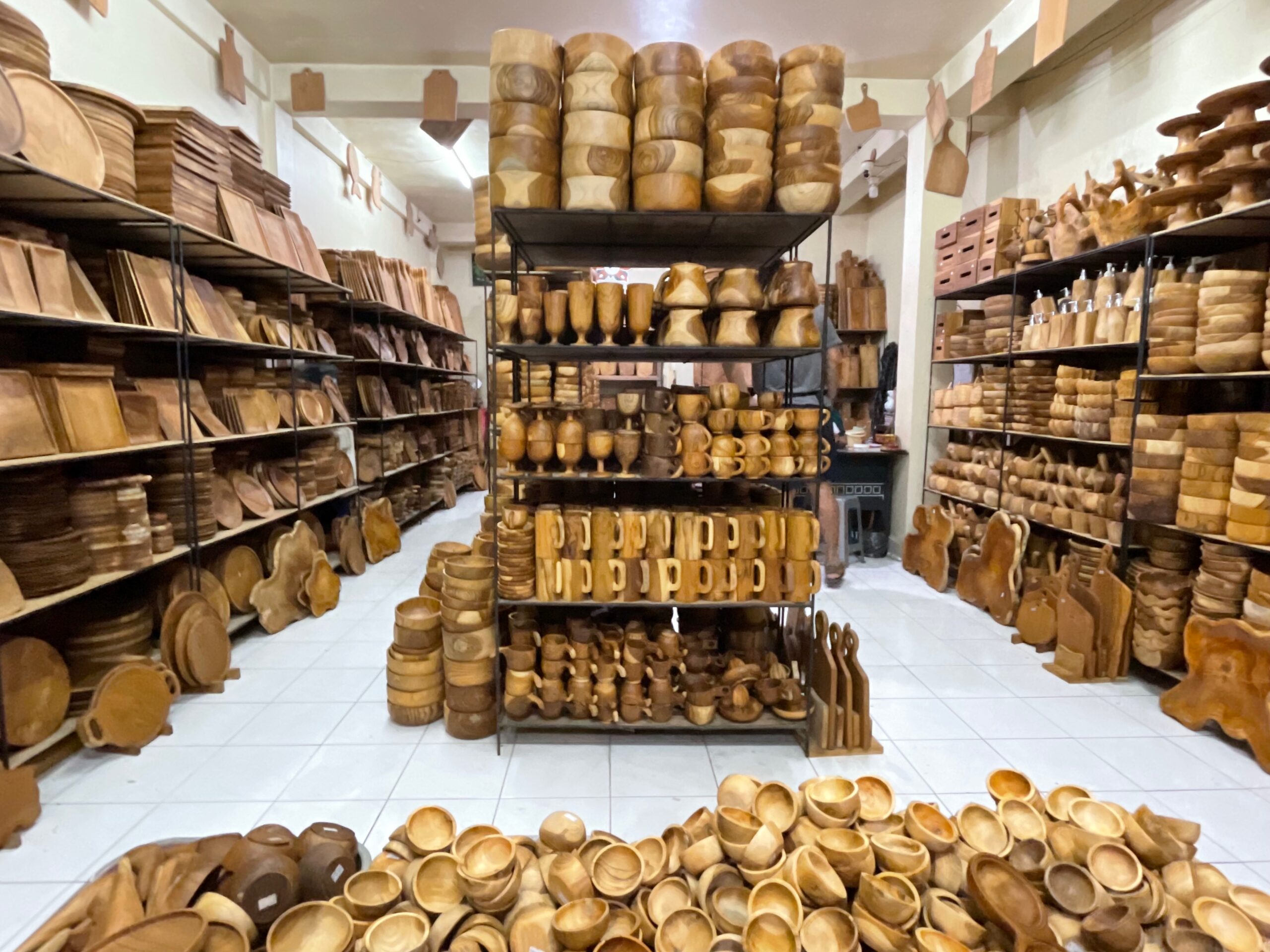 |
When strolling around Balinese markets you will notice plenty of wooden home accessories. Wooden kitchen utensils are practical and authentic souvenir from Bali as it supports local traditions and craftsmanship. Crafted by skilled artisans using locally sourced wood such as teak, coconut, or bamboo, these utensils are functional, durable and aesthetic, they are a good addition to the kitchen décor. From spatulas and spoons to mortar and pestle sets you will for sure find here a practical accessory which will be helpful in the kitchen but also will reminded of Bali every time it’s used.
Where to get it?
Kitchen utensils are widely available in many artisanal markets in more touristy areas. There is also plenty of boutiques which specialize in wooden kitchenware (you can also count there on more professional advice). Alternatively, you can also find a decent selection in bigger local supermarkets in home accessories section.
3. Luwak coffee
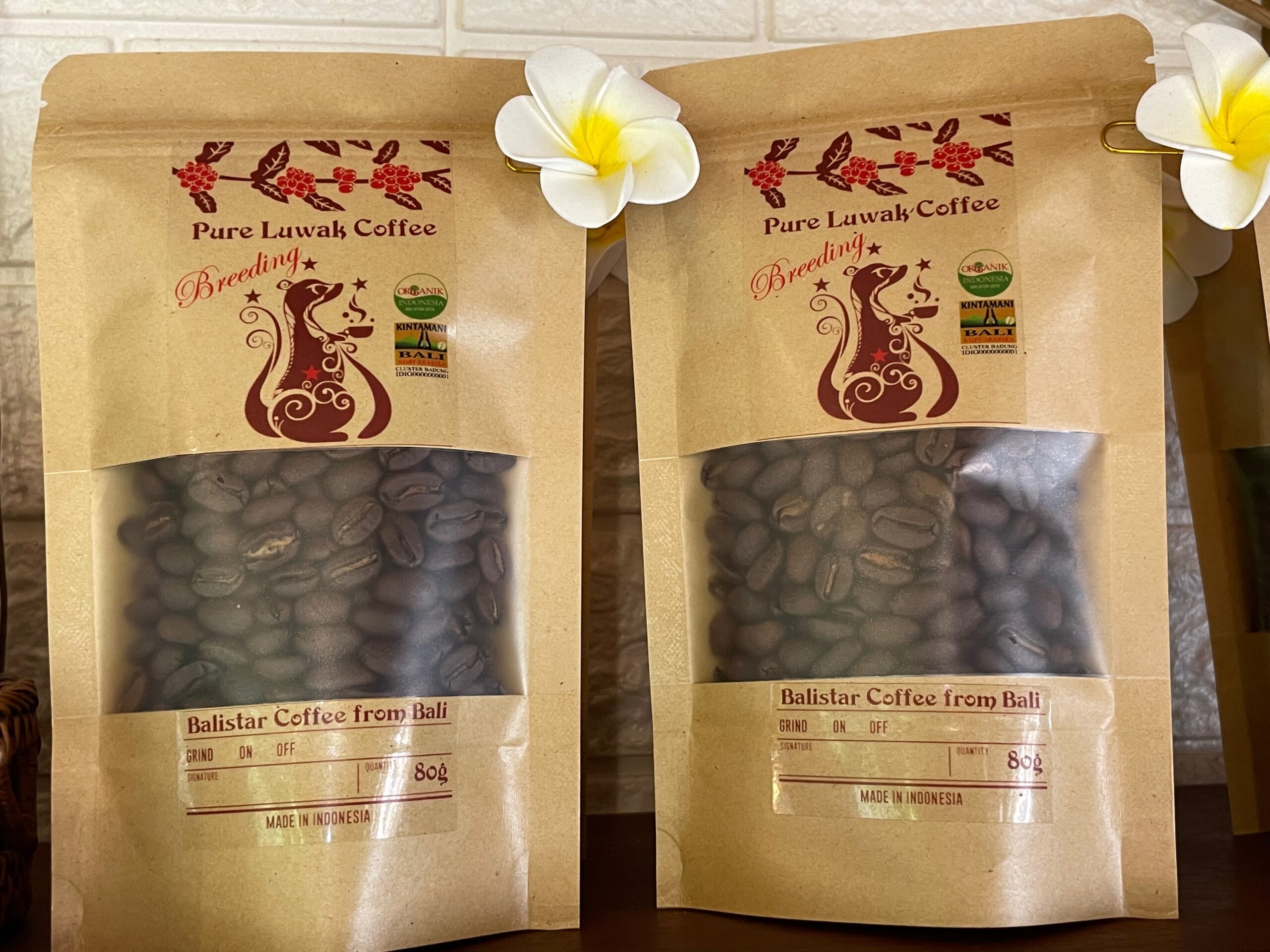 |
Luwak coffee can be found all over shops in Bali. To be honest, this is more Indonesian product than just Balinese but the island is still a great place to taste it and for purchase. Known also as civet coffee, it is known for its rich and smooth taste. In fact, luwak coffee is of the most expensive and exclusive coffees in the world due to its taste and unusual way production, it all starts with a small mammal native to the forests of Southeast Asia.
The civet cats consume ripe coffee cherries as a part of their diet. They eat fleshy pulp surrounding the beans which then pass through their digestive system. The coffee beans undergo fermentation and enzymatic treatment and at the end are excreted. At the end, the beans are collected from the feces of the civet cats. This unusual processing of the coffee beans results in a smoother and less acidic taste of the coffee.
Where to get it?
You will find Luwak coffee in the stores adjacent to coffee plantations, numerous souvenir boutiques as well as in cafeterias so you can firstly taste the coffee and then decide on your purchase. Personally, I have impression that best prices and wide selection can also be found in larger supermarkets in larger towns especially in more touristy areas. When picking your coffee pay attention to information if the coffee comes from the grains picked in the wild or the civets which process the coffee cherries are held in the farms. The prices of coffee coming from the grains picked in Indonesian forests are of course higher, however, the animals living in the nature eat as much coffee cherries as they wish, their diet kept naturally balanced. If you decide to purchase the coffee made of grains processed by civets in the farms, search for labels and certification that confirm that the animals were treated well and that their diet was balanced, without forcing them to eat the coffee cherries in excess to make larger profits.
4. Kintamani coffee
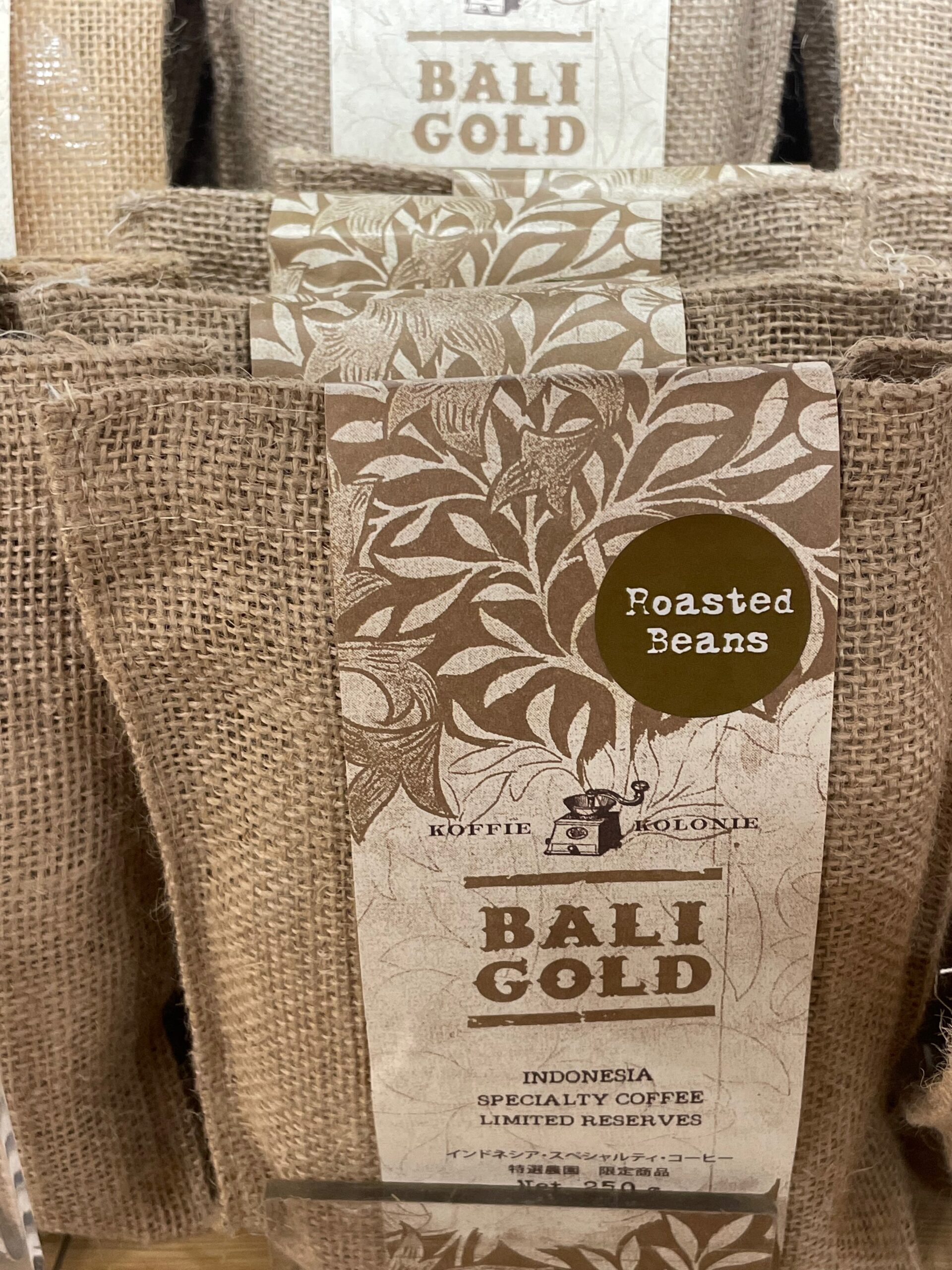 |
Despite of its small size, Bali has its own coffee plantations, one of the most known ones located in the highlands of Kintamani (grown on the slopes of Mount Batur). This is a truly Balinese product, the coffee is valued for its rich flavor affected by the volcanic soil, elevation and specific microlimate in Kintamani. The aforementioned factors result in obtaining coffee with distinctive flavor characterized by rich aroma and balanced acidity.
Where to get it?
You can buy coffee grains sourced from Kintamani in supermarkets or specialized shops. Interestingly, many farmers in the region use traditional farming methods and cultivate coffee along other crops which has its benefits for the environment. The cultivation of coffee beside fruits and vegetables helps to maintain soil fertility and biodiversity.
If you are a coffee enthusiast, I think it’s a good idea to explore the coffee selection in the larger shops with grains coming also from other parts of Indonesia. Coffee grains coming from Sumatra are very much valued for its taste and quality worldwide, and Sumatran coffee is not always widely available overseas. If you’re not sure which coffee to choose, look at the information on the packages which indicate the degree of acidity, flavor, aroma and body and then make the choice depending on your preferences. You can also have a bit of fun and do some small research and read more about the exact regions from where the coffee comes from.
5. Wooden traditional masks
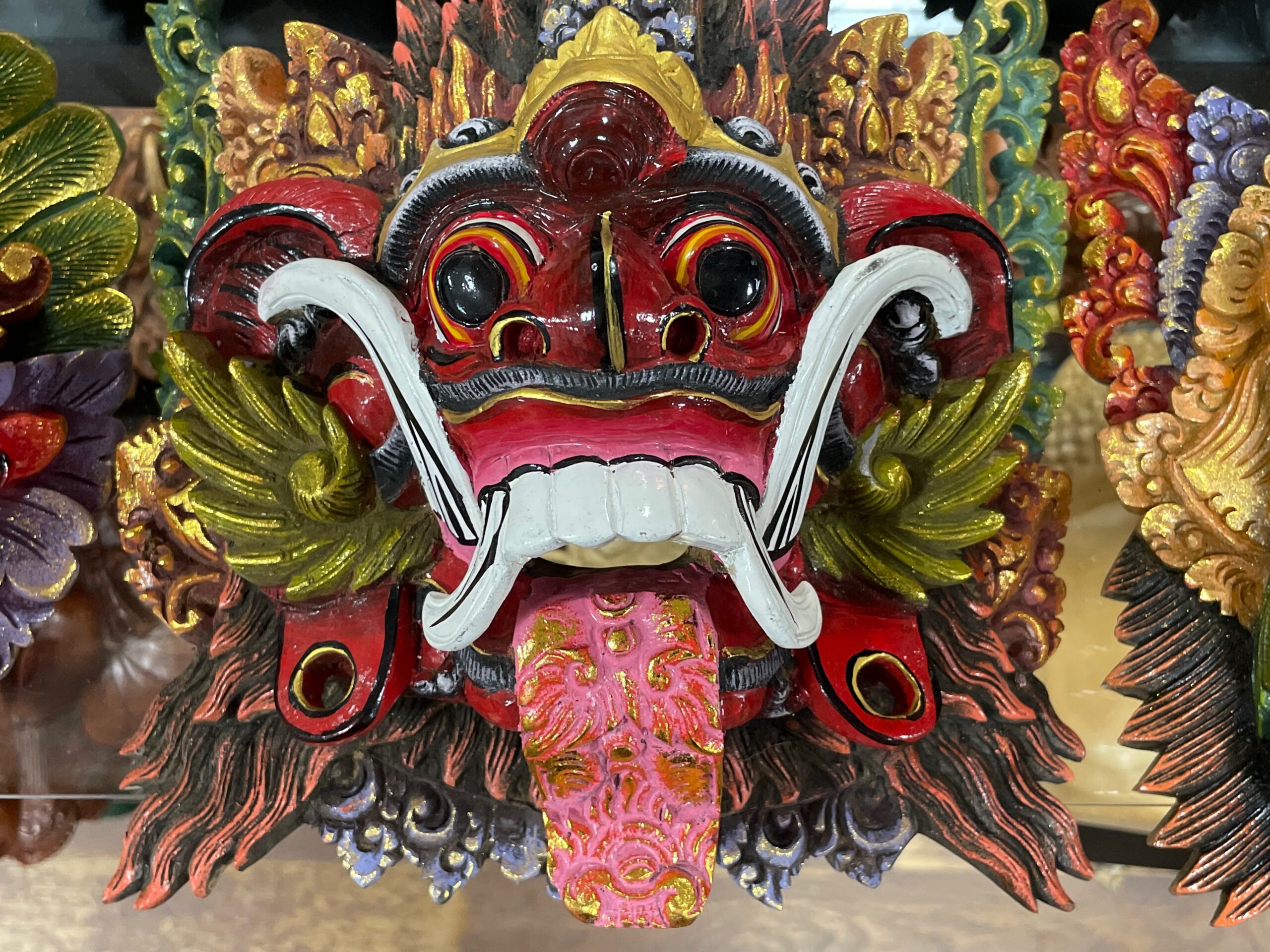 |
When walking around Balinese markets you will notice plenty of stands with wooden carved masks. If you search for objects which are part of traditional art that hold significant cultural and spiritual meaning in Bali, then buying a mask can be an excellent souvenir. Masks are usually crafted by skilled artisans, if you travel along the island you will notice plenty of workshops with wooden carvings. The tradition of mask carving in Bali dates back centuries and is deeply rooted in Balinese Hinduism. Masks are believed to have a spiritual power and are treated with reverence and respect. However, the masks are also valued for their aesthetic beauty and craftsmanship. They are objects appreciated by collectors and art enthusiasts worldwide and they also serve as decorative pieces in homes, galleries, and museums. If you think that the mask fits aesthetic of your home, you can consider it as a decorative piece. The masks are truly authentic and traditional souvenir from Bali, purchasing them support local artisans since creation of such intricate objects requires a high level of craftsmanship.
Where to get it?
You can find a vast selection of masks on artisanal markets and in boutiques located in more touristy areas. If you have more time, you can visit workshops where the masks are produced, these places can be situated a bit further from the most popular places. Visiting a workshop would allow you to observe the carving process which may be eventually useful to understand the quality, you will also directly support the artisan. Before deciding on the purchase visit few places and verify the quality and how detailed the carvings. When walking around inquire about the prices to gauge the value of the objects and the prices vary depending on size, intricacy of carving, type of wood. This will allow you to be more capable during negotiation of price of the mask which you finally decide on buying.
6. Silver jewelry
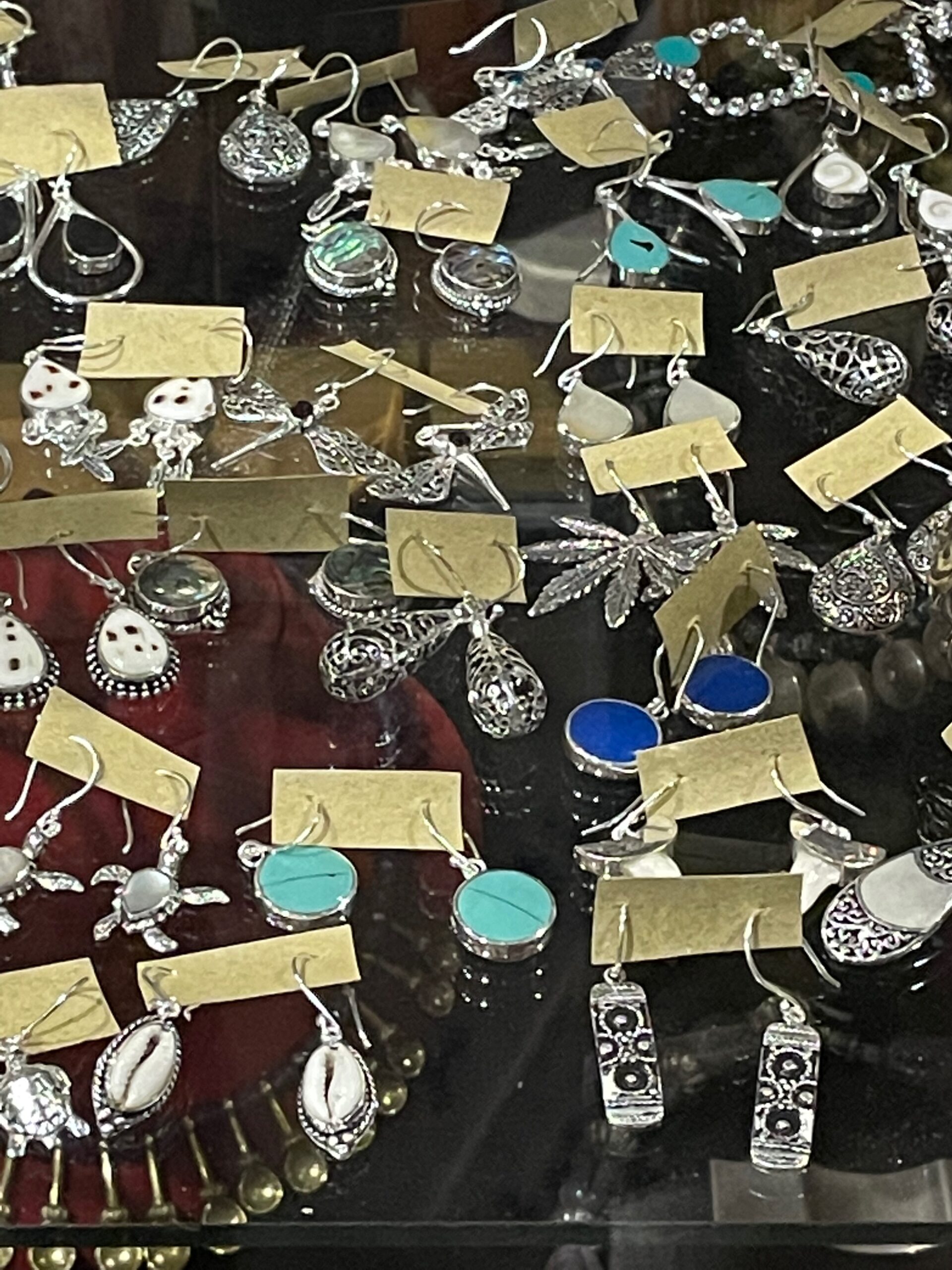 |
Bali is famous for its silver jewelry craftmanship. When your travel around the island you pass local factories and there is even a silver village Celuk with many artisanal workshops and small boutiques. Balinese silver jewelry is particularly famous for is its intricate filigree work and detailed patterns. Artisans use traditional techniques such as granulation, repoussé, and chasing in order to make elaborate designs on silver sheets or wires.
The art of silver jewelry making has a long history in Bali, dating back centuries. Balinese artisans draw inspiration from their surroundings, incorporating motifs from nature, mythology, religion, and Balinese culture into their designs. All over island you will also find stores with modern contemporary pieces to suit many preferences.
Where to get it ?
If you want to make sure you buy quality jewelry pieces, I recommend going to reputable boutiques and workshops. Ask for certificate of authenticity to ensure that the product is original.
7. Wooden furniture
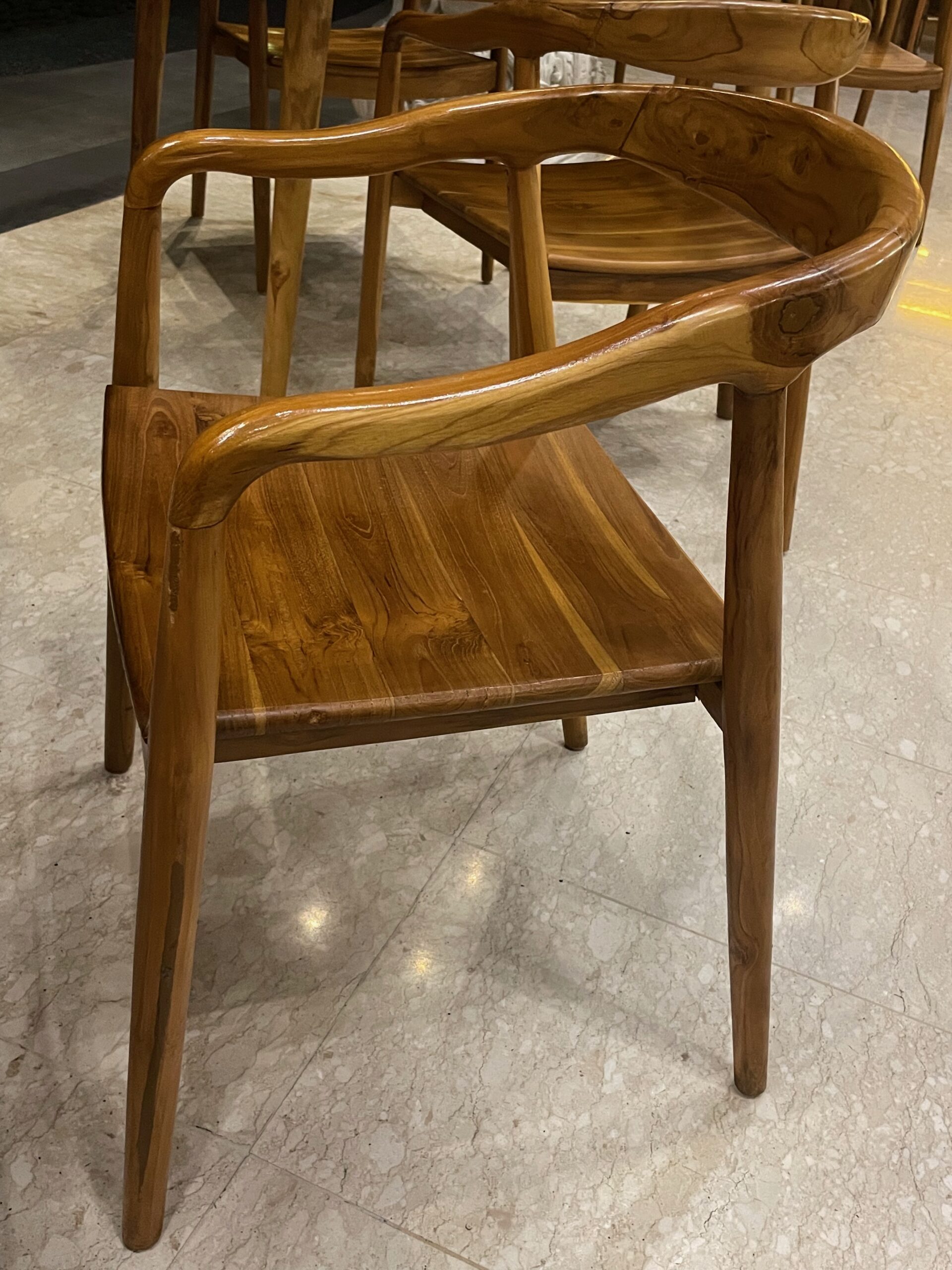 |
Bali and Indonesia in general is renowned for its high quality wooden furniture. Balinese wooden furniture is not only aesthetically pleasing but also highly functional. The furniture is primarily made of high-quality teak wood, known for its durability and natural resistance to decay. When travelling around the island you can spot many workshops where each piece of furniture is meticulously handcrafted. Whereas traditionally made pieces are often adorned with ornate carvings inspired by Balinese mythology, Hindu motifs, and nature, you will also find plenty of furniture in various contemporary styles with sleek lines and minimalist aesthetics. In fact, Balinese wooden furniture complements a variety of interior styles, from rustic and bohemian to tropical and eclectic.
Where to get it?
Bigger furniture pieces are considerable purchase. I recommend going to specialized furniture stores or directly visit the workshops. Since you can easily visit the workshops, you can ask the artisans to customize your project to fot more specific preferences such as dimensions or different finishes to make the items perfect for your home interior. If you decide on buying the furniture, consider before delivery options and costs related to sending your items overseas. There can be additional import taxes and some extra permissions or formalities when transporting bulky objects. It is also possible that the ordered items will not be ready to ship immediately, and that the parcel will be sent to your home after your departure from Bali if you don’t stay there for a long time.
8. Balinese tropical fruits snacks
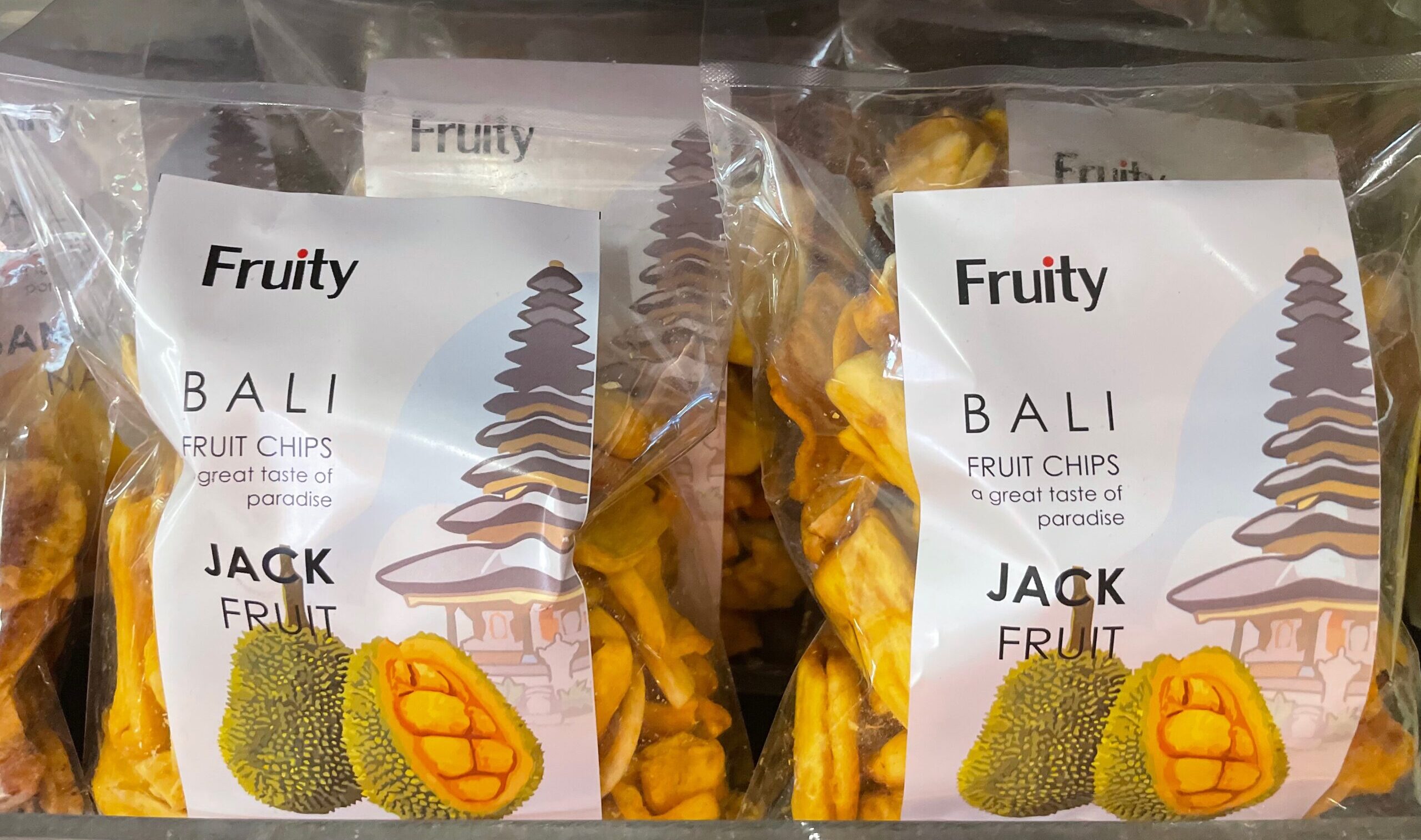 |
If you’re a fan of Balinese tropical fruits, then bringing few packages of the dried fruit snacks for your family and friends is an excellent idea so you can enjoy Balinese flavors even if you’re back home.
The snacks are not only delicious but also a healthy choice since Balinese tropical fruits are packed with essential vitamins, minerals, and antioxidants, making them a nutritious choice for health-conscious consumers. Fruits like mangoes are rich in vitamin C and fiber, while pineapples contain bromelain, an enzyme known for its anti-inflammatory properties. Dragon fruit is prized for its high antioxidant content, while papaya is renowned for positive influence on digestive system.
Where to get it?
The dried fruit snacks are widely available in local shops, I suggest going to larger supermarkets for a bigger selection. You can opt for smaller and light packages which are easier to transport.
9. Durian flavoured sweets
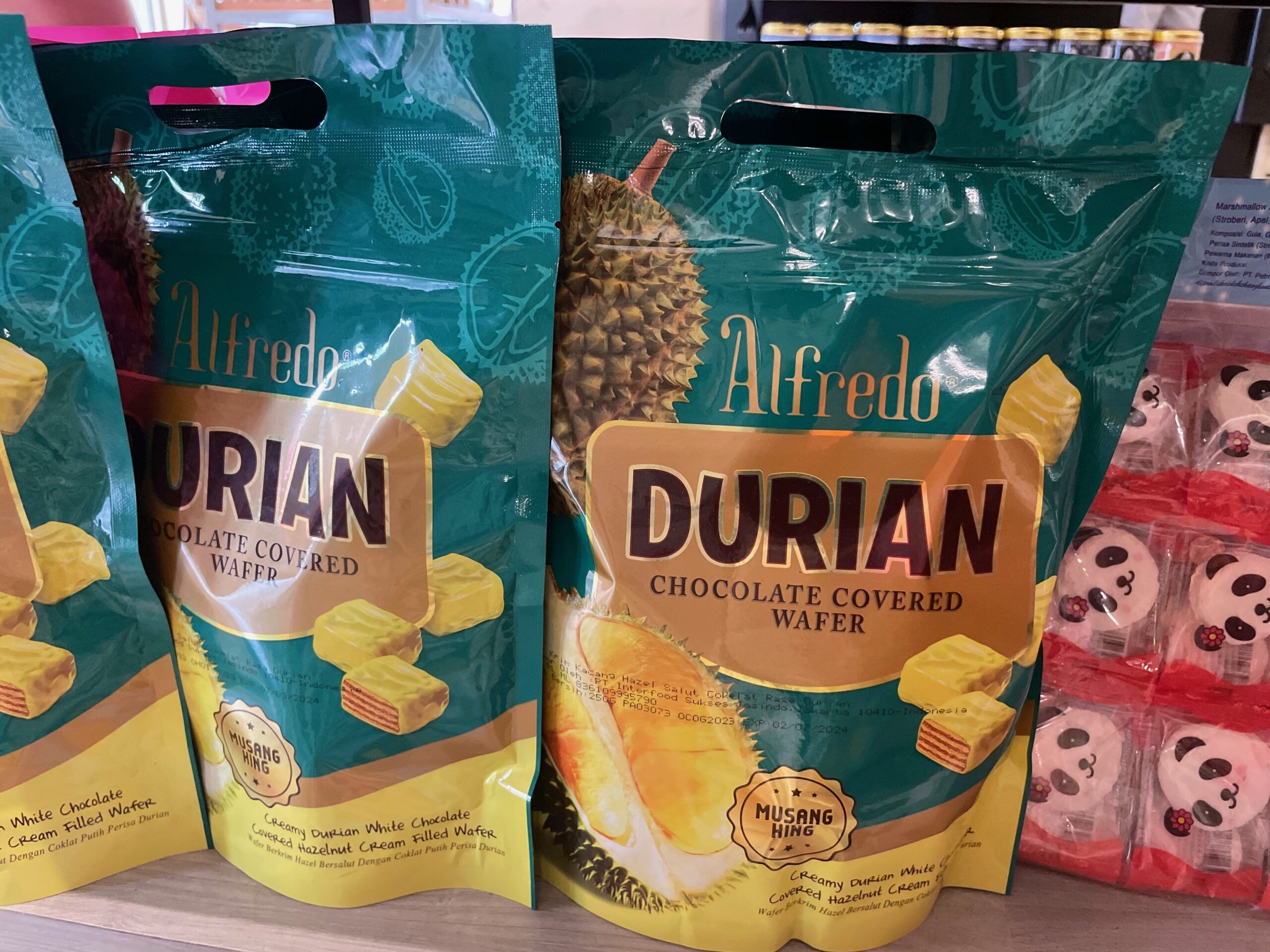 |
If you want to buy some truly original snack which is rare to find outside of South Asia, then durian flavored snacks are an excellent idea. Durian is a tropical fruit which is famous for specific smell, often described as strong and pungent, earning it the nickname “the king of fruits.” The smell is so intense that you will find many warnings in public spaces banning you to carry durians with you in countries where the fruit naturally grows. Despite the strong odor, durian is appreciated by many for its rich, creamy texture and complex flavor profile, which differs from sweet and custardy to slightly bitter with hints of almond or caramel. It’s best to ask the seller to choose a durian for you since they can estimate by visual inspection which fruit has a good texture. Durian trees are quite rare in the world, they are native to Southeast Asia, particularly in countries like Malaysia, Indonesia, Thailand, and the Philippines so any durian containing snack will be an original treat if don’t leave in any of the aforementioned countries
Where to get it?
I recommend trying fresh durian fruits when visiting Bali, however, if you want to enjoy the taste of it when back home or just surprise your friends with the original taste, then go for some candies, chocolate or dried crisps with durian flavor or containing small pieces of durian. The snacks are available in supermarkets all over Bali, try the shops in more touristic areas since they are better stocked with durian flavored products.
10. Balinese cosmetics
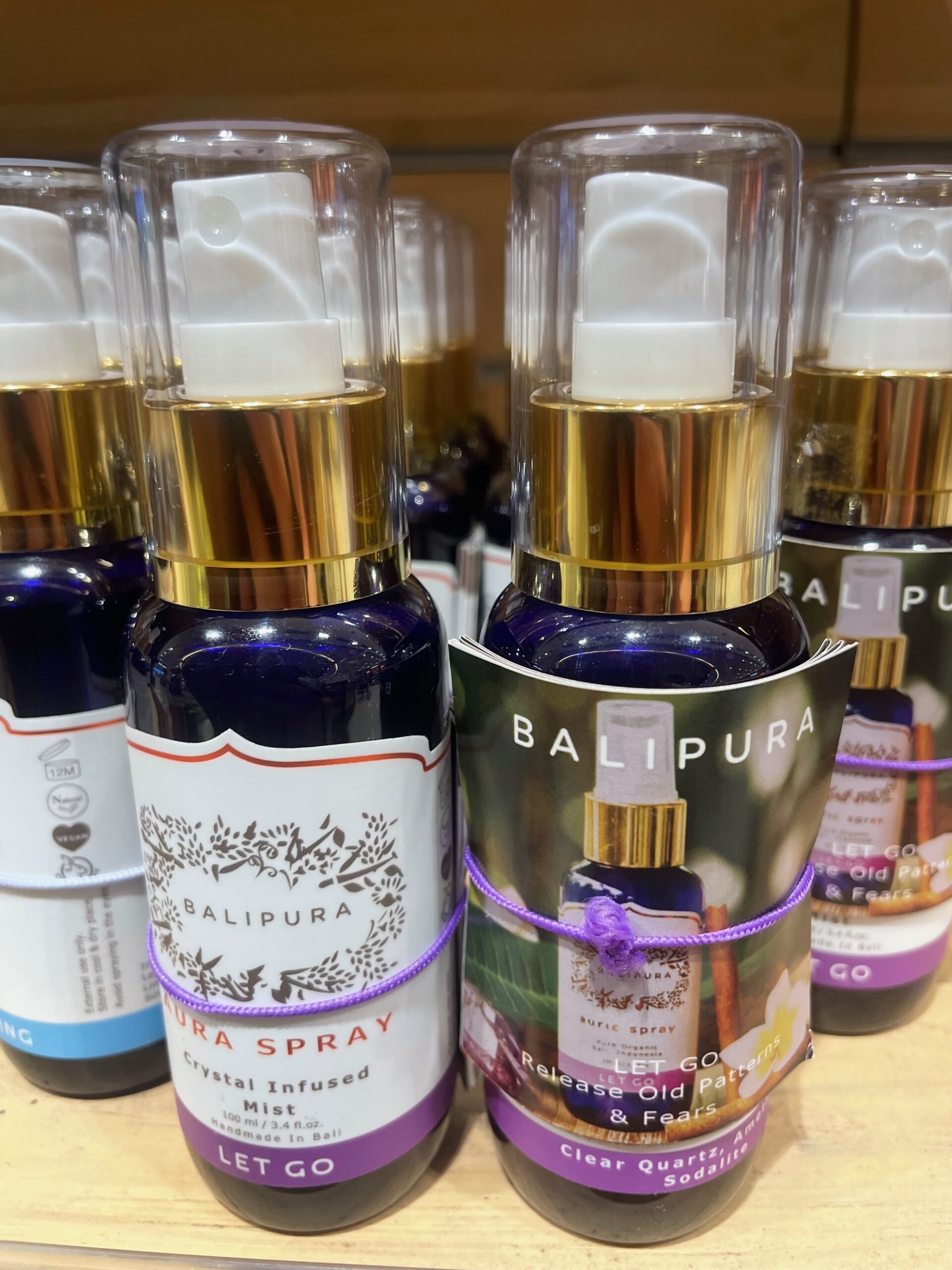 |
During travelling around Bali you will see countless spa and wellbeing facilities which offer many wellness procedures to rejuvenate and relax your body. Most of the spas use locally produced cosmetics made of natural ingredients which comes as no surprise since Bali has a lush tropical climate and abundance of plants with beneficial properties for the body. Balinese cosmetics contain aromatic flowers like frangipani and jasmine and exotic herbs and spices such as turmeric, lemongrass, and ginger, in general ingredients which are selected are known for their healing properties and are incorporated into a variety of skincare and body care products. The offer of local cosmetics is wide, you can easily find high quality blend of essential oils, as well as many nourishing products suited to specific skin types, or addressing particular concerns such as hydration or anti-aging.
Where to get it?
You will find plenty of small boutiques selling Balinese cosmetics in more touristy areas of Bali, you can also ask for recommendations in reputable spa facilities (often you can also buy there some of the products). From handmade soaps and bath salts to aromatic oils and botanical skincare products, Balinese cosmetics are a great souvenir of the island’s natural beauty and the rejuvenating experiences that Bali offers.
11. Straw storage boxes
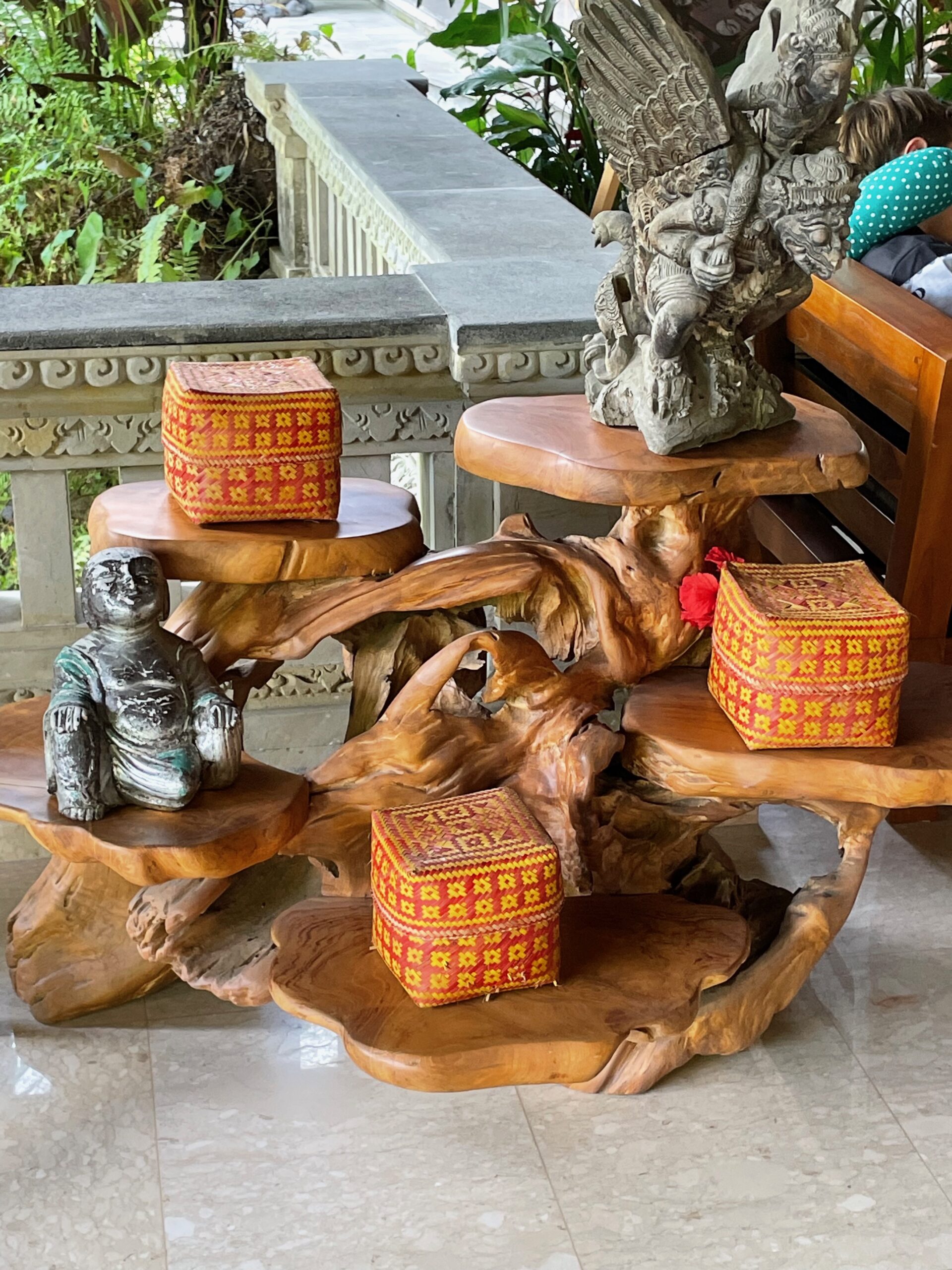 |
Straw storage boxes are a very practical gifts that are handcrafted in Bali and available practically everywhere as they are also often purchased by locals for various storage purposes. They are crafted using traditional weaving techniques and locally sourced materials. The elaborate weaving patterns and attention to detail result in beautifully textured and sturdy boxes that are as aesthetically pleasing as they are functional.
The boxes are ideal for various storage functions as you can organize and declutter your space in your house. The boxes come in different sizes so you can easily put inside books, clothes, small accessories and various household objects. When purchasing the boxes assess if they have a sturdy construction and if the size is adapted to your needs.
Where to get it?
This is a widely available and very affordable souvenir, you can find it on the local markets, street stands and regular stores. You can negotiate the price when buying from the street vendors and artisanal markets or make your purchase in bigger supermarkets where the prices are fixed.
12. Arak liquor
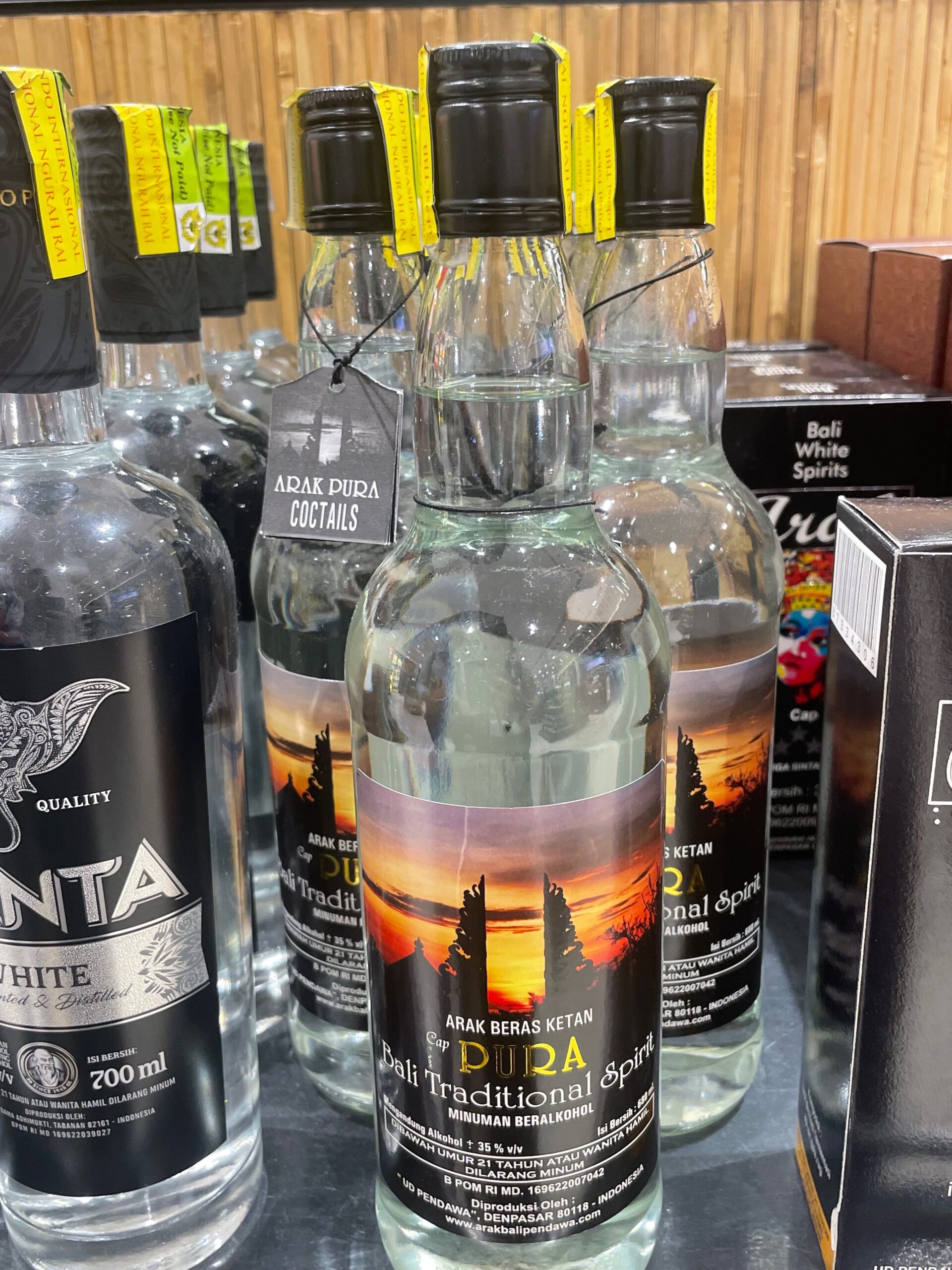 |
Indonesian arak is a traditional distilled alcoholic beverage commonly found in various parts of Indonesia. The drink is particularly popular in Bali since the predominant religion on the island is Hinduism and thus there are no restrictions on alcohol consumption for the locals. Arak is typically made from fermented palm sap, although other base ingredients such as rice, coconut, or sugar cane may also be used. The process of making arak involves tapping the sap from palm trees, fermenting it, and then distilling the liquid to increase its alcohol content. Indonesian arak is a potent beverage often having a high alcohol content ranging from 30% to 50%, though it can vary depending on the specific production methods and ingredients used.
Where to get it?
To choose your favorite type of arak before purchasing I suggest trying it in few bars and restaurants and if you like your drink ask the waiter to show you the bottle so you can find the same product later. Alternatively, find a specialized store and indulge in some tasting before an actual shopping.
You can easily find arak in bigger supermarkets, liquor shops and in duty free stores in the airport.
13. Rattan bags
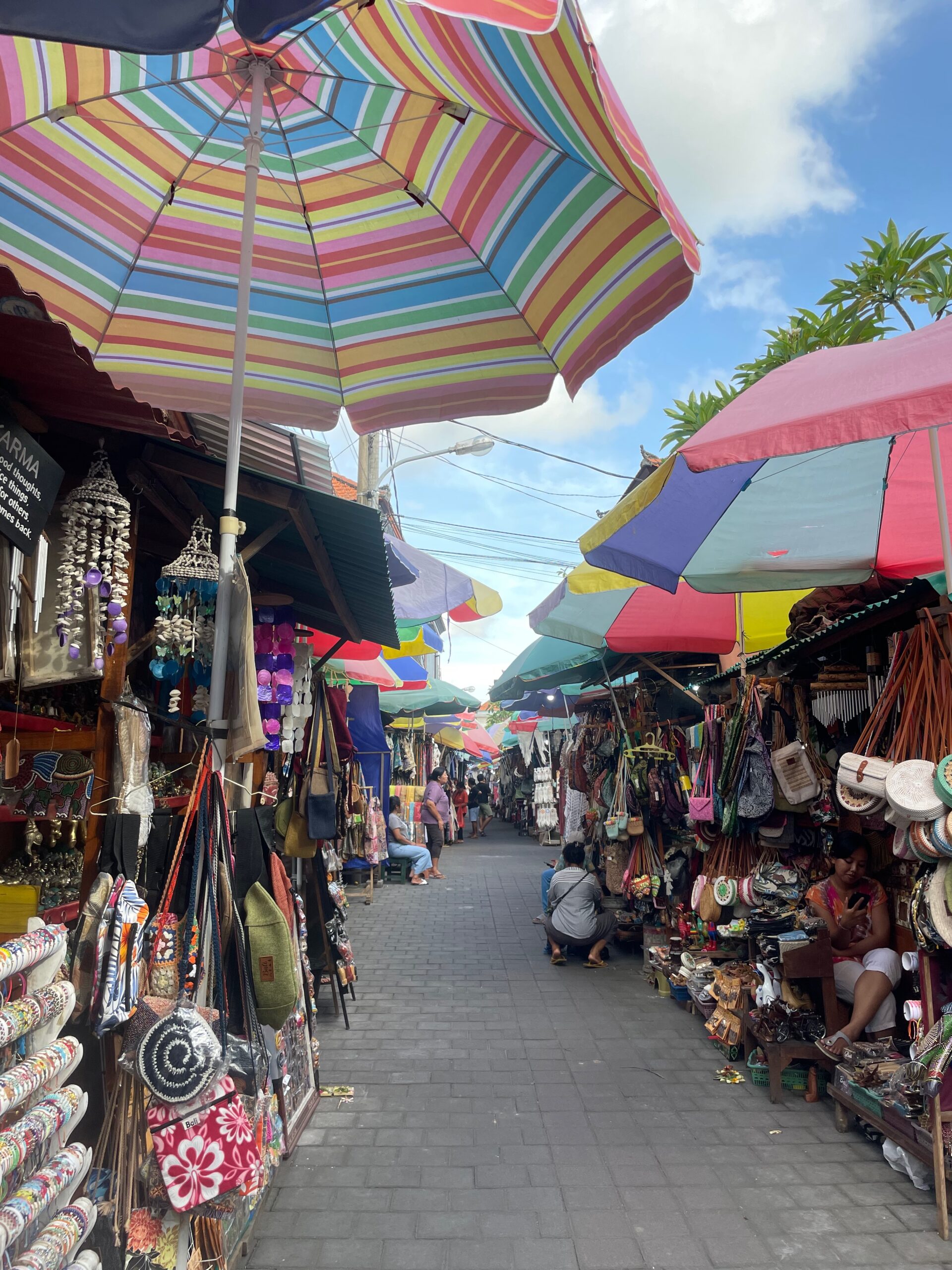 |
A very nice idea for a souvenir are locally made rattan bags. The process of making Balinese rattan bags begins with harvesting rattan stems from forests or plantations. The stems are carefully selected for their quality and then stripped of their outer layer to reveal the smooth inner core. This core is then cut into thin strips, which form the basis for weaving the intricate patterns and designs of the bags. Balinese artisans use traditional weaving methods in order to create the bags. Each purse is meticulously hand-woven, before making your purchase visit few markets and boutiques to check out different patterns. The bags are a nice accessory for the summer months.
Where to get it?
The rattan bags are one of the more popular souvenirs in Bali. You will find them in artisanal markets, street stands and various boutiques with fashion accessories. Before making decision, see few places to check the available selection, pay attention to the quality of weaving and inquire about the prices which will later on be useful when starting the negotiations.
14. Coconut shell items
Products made of coconut shells are original and eco-friendly souvenirs. These items are created from the outer shell of mature coconuts which are transformed into a wide range of functional and decorative objects through skilled craftsmanship and creativity. One of the most common coconut shell items is tableware, including bowls, plates, cups, and utensils. These items are crafted by shaping and smoothing coconut shells into various shapes and sizes, often retaining the natural texture and color of the shell. Coconut shell tableware is not also visually nice but also lightweight, durable, and biodegradable, making it a considerable alternative to plastic or ceramic tableware. Coconut shell handicrafts also include home decor items such as candle holders, coasters, vases, and decorative ornaments. Apart from home décor and kitchenware, coconut shells are also used to make a variety of fashion accessories and jewelry such as necklaces or earrings.
Where to get it?
You will find plenty of coconut shell products in various artisanal markets and souvenir shops. Visit few stands to understand the prices and recognize good quality.
15. Balinese confitures
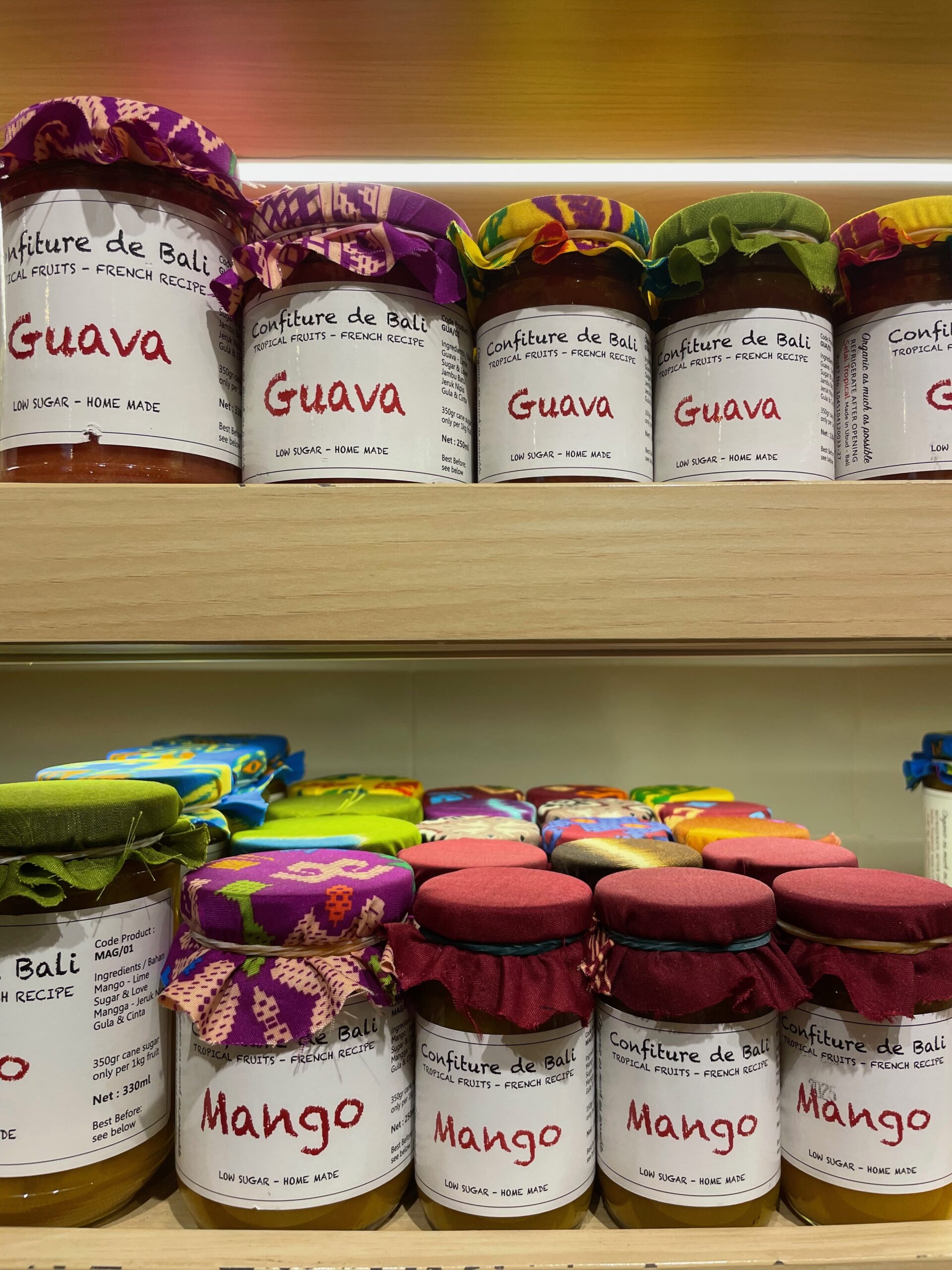 |
If you like Balinese exotic fruits, then buying locally made confitures can be a good idea to savour the island’s flavours when back home. Made from locally sourced fruits, spices, and herbs, these jams showcase the island’s rich biodiversity and traditional culinary techniques. One of the most popular are mango and pineapple confitures, however you will also find products with passion fruit, guava, and rambutan. Balinese fruits are values for their flavours and aromas, which are preserved through careful cooking and minimal processing.
Where to get it?
My impression is that the best quality confitures are offered in specialized stores in the tourist areas. These confitures and jams have natural ingredients and lowered amount of sugar. I had problem to find good quality jams and confitures without a lot of added sugar and preservatives in local supermarkets as I suspect Balinese people are just enjoying the fresh fruits on daily basis.
16. Balinese sambal sauce
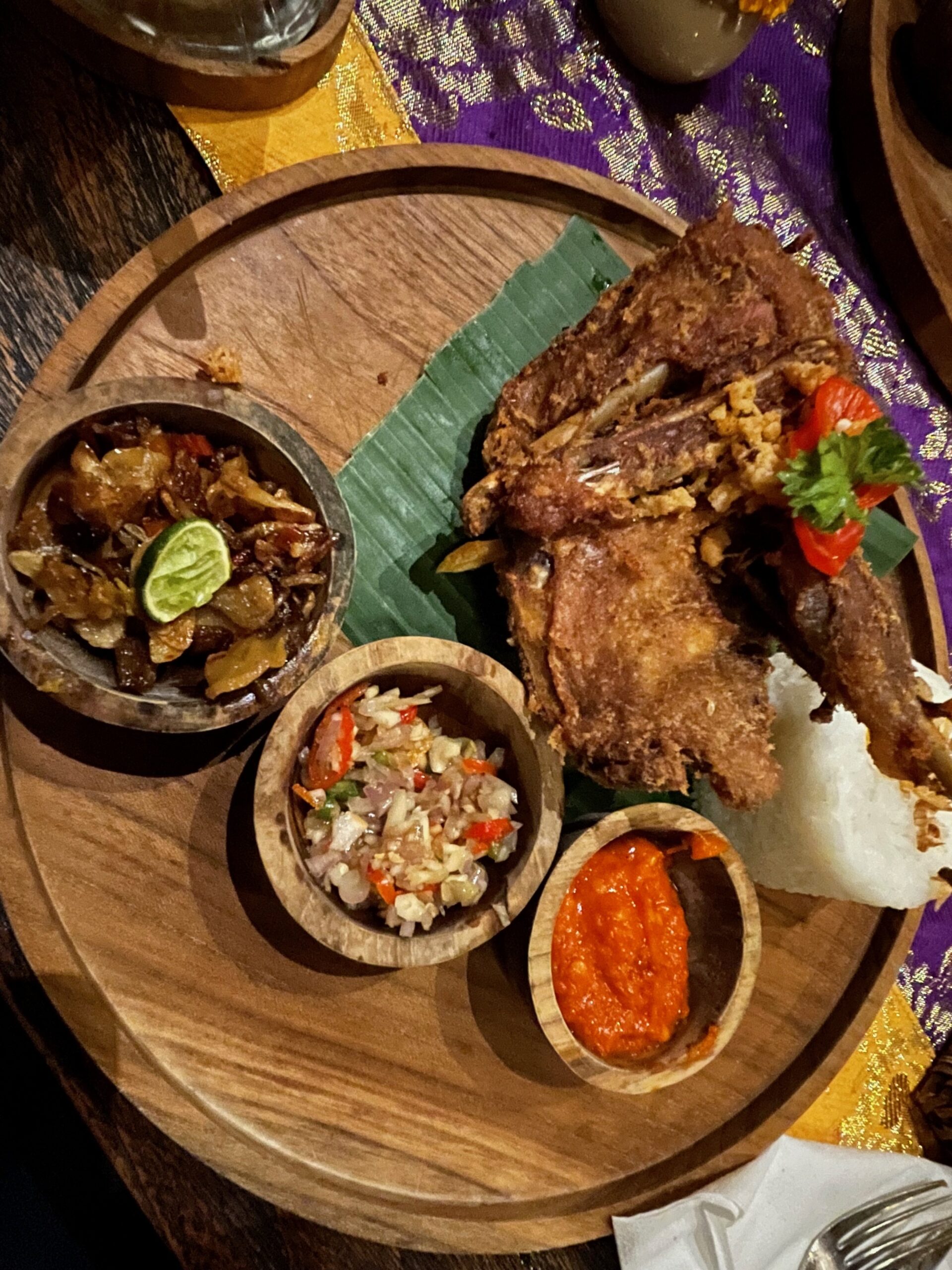 |
Sambal is a spicy and flavourful chili-based condiment that adds a punch of heat and depth to Indonesian cuisine. Each region in Indonesia, including Bali, has its own unique variations and recipes. Balinese sambal, known locally as “sambal matah” or “sambal ulek.”
Balinese sambal has impressive versatility as it is used as a condiment, marinade, or flavouring agent in a wide range of dishes. It goes well with grilled meats, seafood, vegetables, and rice dishes, adding depth and complexity to any meal. Balinese sambal is often served alongside traditional Balinese dishes such as babi guling (suckling pig), bebek betutu (smoked duck), and nasi campur (mixed rice), adding to the dishes bold and vibrant flavours.
Where to get it?
You will find sambal in local food stores and supermarkets and if you search for more artisanal products, head straight to the speciality stores in more touristy areas.
17. Jatiluwih rice
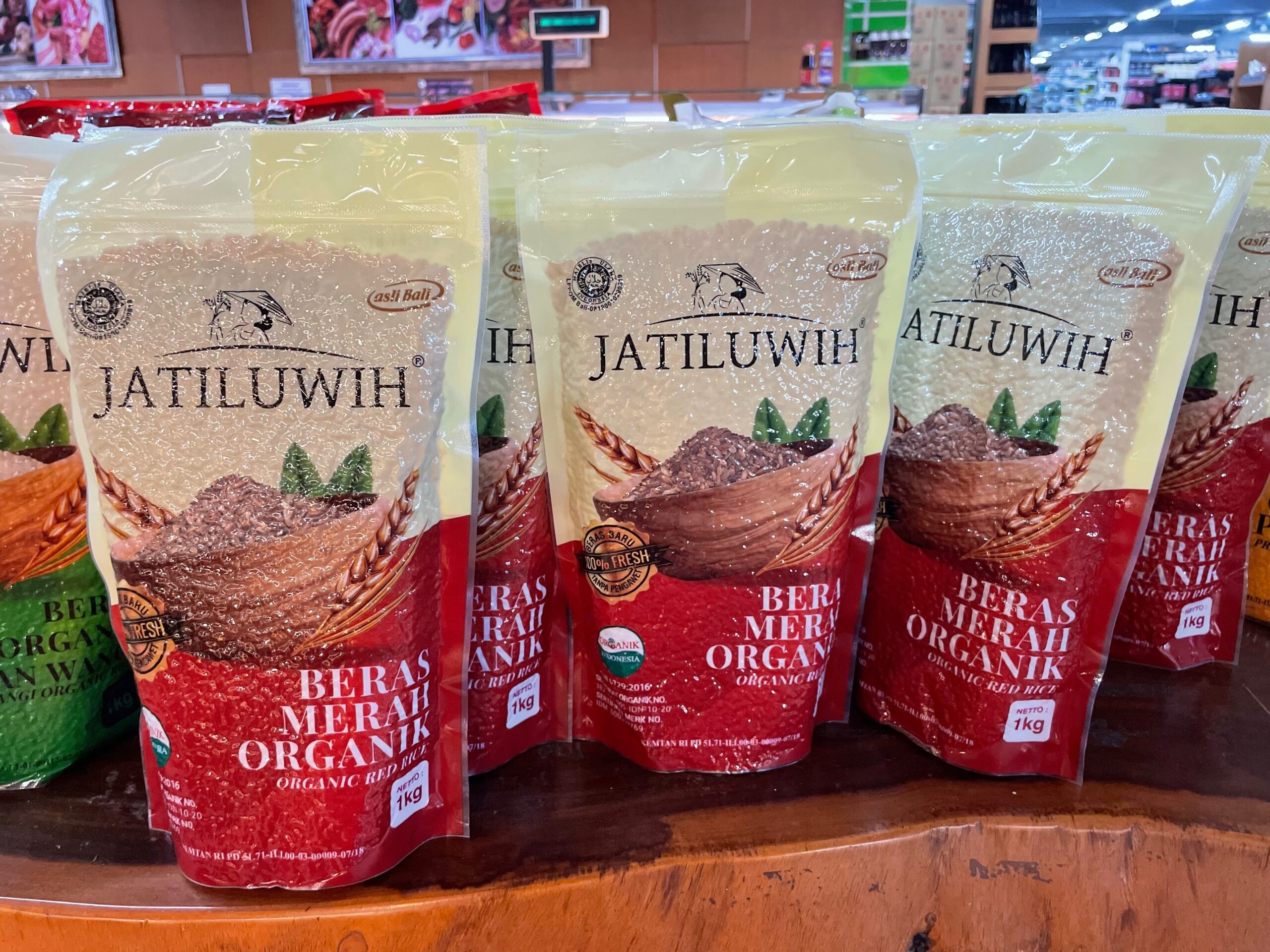 |
If you visited Jatiluwih rice terraces a fun souvenir can be bringing a box of rice coming exactly from this UNESCO World Heritage Site. In fact, if you want to do some trips around Bali, Jatiluwih rice terraces are a perfect destination for a half-day visit. The terraces are located in the Tabanan Regency, approximately 700 meters above sea level, amidst the green slopes of Mount Batukaru. This particular location has a fertile volcanic soil, ample rainfall, and a temperate climate which create ideal conditions for rice cultivation. The site is known for scenic landscapes (Jatiluwih, which means “truly beautiful” in Bahasa Indonesia), you can also admire there intricate irrigation systems as well as centuries-old agricultural traditions.
Where to get it?
You will find Jatiluwih rice packages in bigger supermarkets.
18. Balinese gamelan music instruments
When spending time in Bali, you will hear in many places harmonious and rhythmic sounds with distinctive notes of percussion instruments, including metallophones, gongs, drums, xylophones, and bamboo instruments. This ensemble of music instruments is called gamelan. Gamelan music can be characterized by interlocking rhythms where different instruments play complementary rhythmic patterns which results in harmonious and dynamic compositions.
Crafting Balinese gamelan instruments is labor-intensive process which demands a high level of skill from the artisan. The instruments are typically made from bronze, iron, bamboo, wood, and animal hide. Each component is carefully selected and crafted to achieve the desired sound quality and tonal balance.
Where to get it?
If you’re interested in music and like trying various instruments you can search for gamelan instruments in special stores in more touristy areas.
19. Wooden toys for children
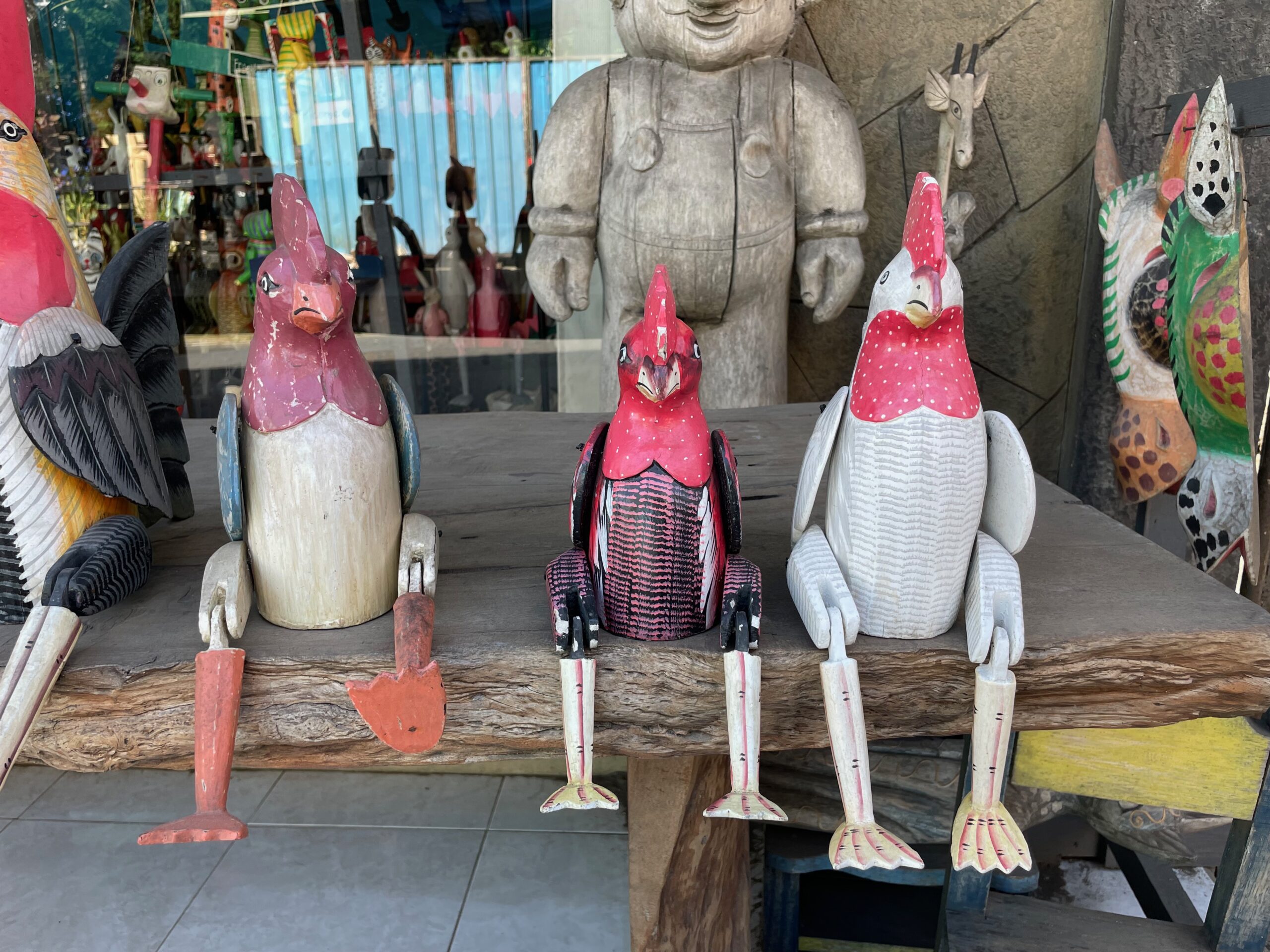 |
If you want to bring a traditional and authentic souvenir for children, then wooden toys crafted from local materials by Balinese artisans are a very nice idea.
When searching for the toys, you will see a huge variety of products, some of the are inspired by Balinese mythology, nature, and everyday life, featuring intricate designs and vibrant colours. However, there is also plenty of toys without referring to Indonesian culture, with a wide selection of wooden cars, planes, figurines etc. At the end of the day, ask your little ones what caught their attention.
Where to get it?
You will find a huge variety of toys in local markets and specialty shops. I also found a very nice selection in duty free stores.
20. Batik toys for children
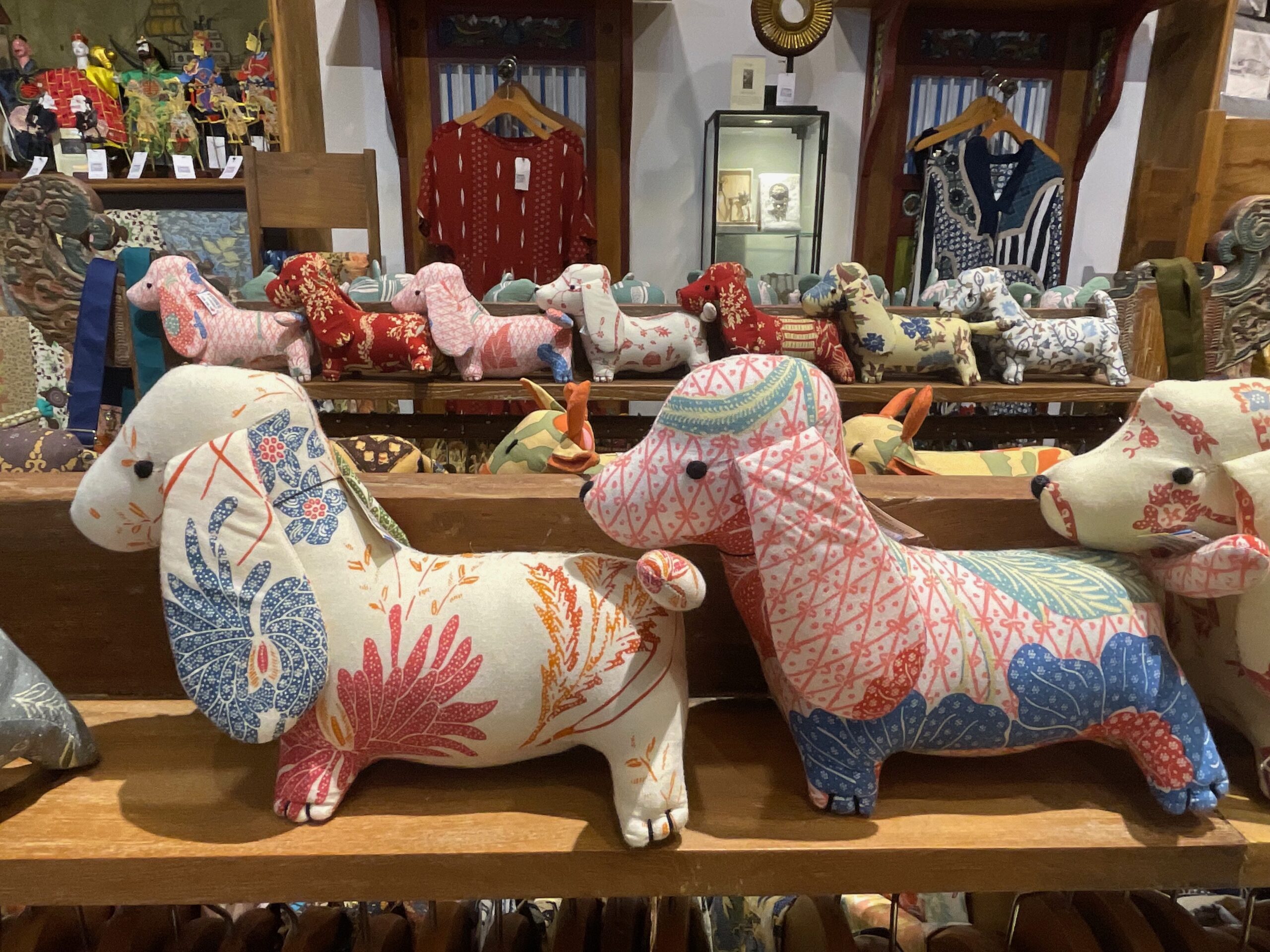 |
A very good souvenir for children would be batik toys. They often have fantastic colours, soft texture and are in general very cute. You can easily find plenty of plush toys in shapes of animals, fantastic creatures or dolls. The items are made for children in different ages, always make sure that the selected toy is suited for the age of your child.
Where to get it?
The batik toys are available in stores specialized in batik accessories and boutiques with items for children. There is a very nice choice of batik products for children in duty stores in Bali airport. I don’t recommend buying toys for children in random stands in the markets and would stick to reputable stores to ensure that the toys are safe to use. Check the certificates and attestations to make sure that the batik paint is safe for a child as well as the from which age the toy is suitable to use.
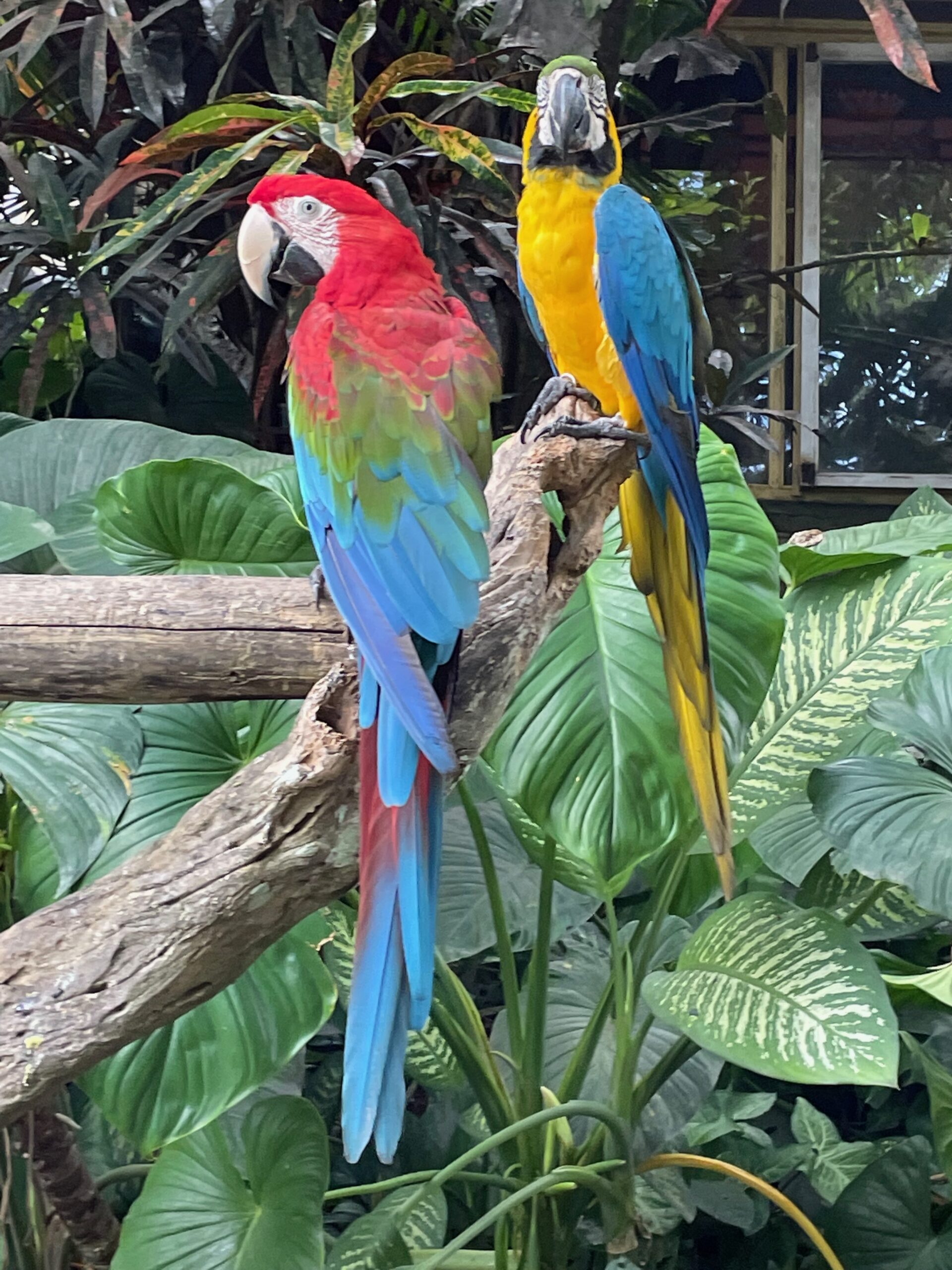 |
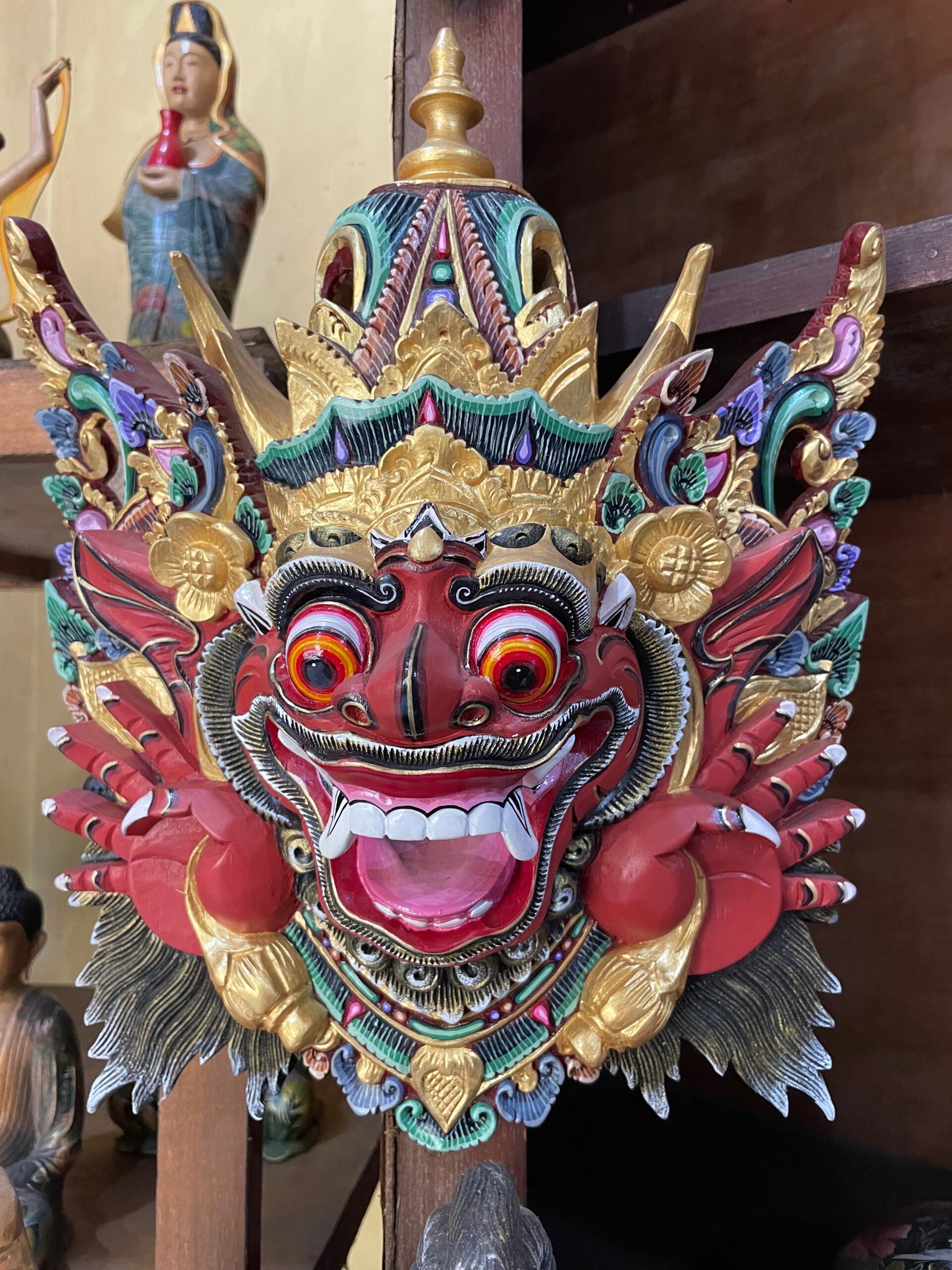
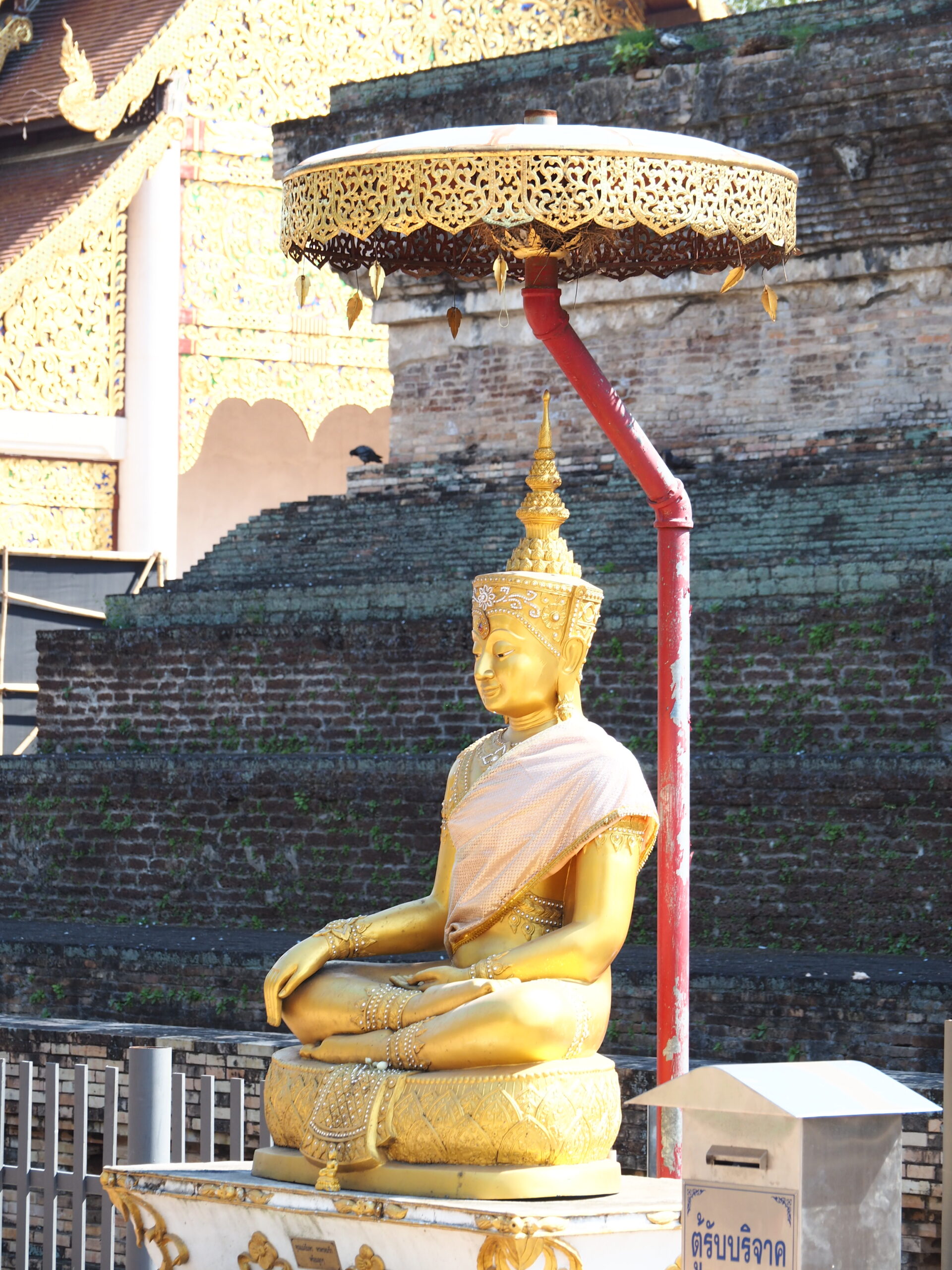

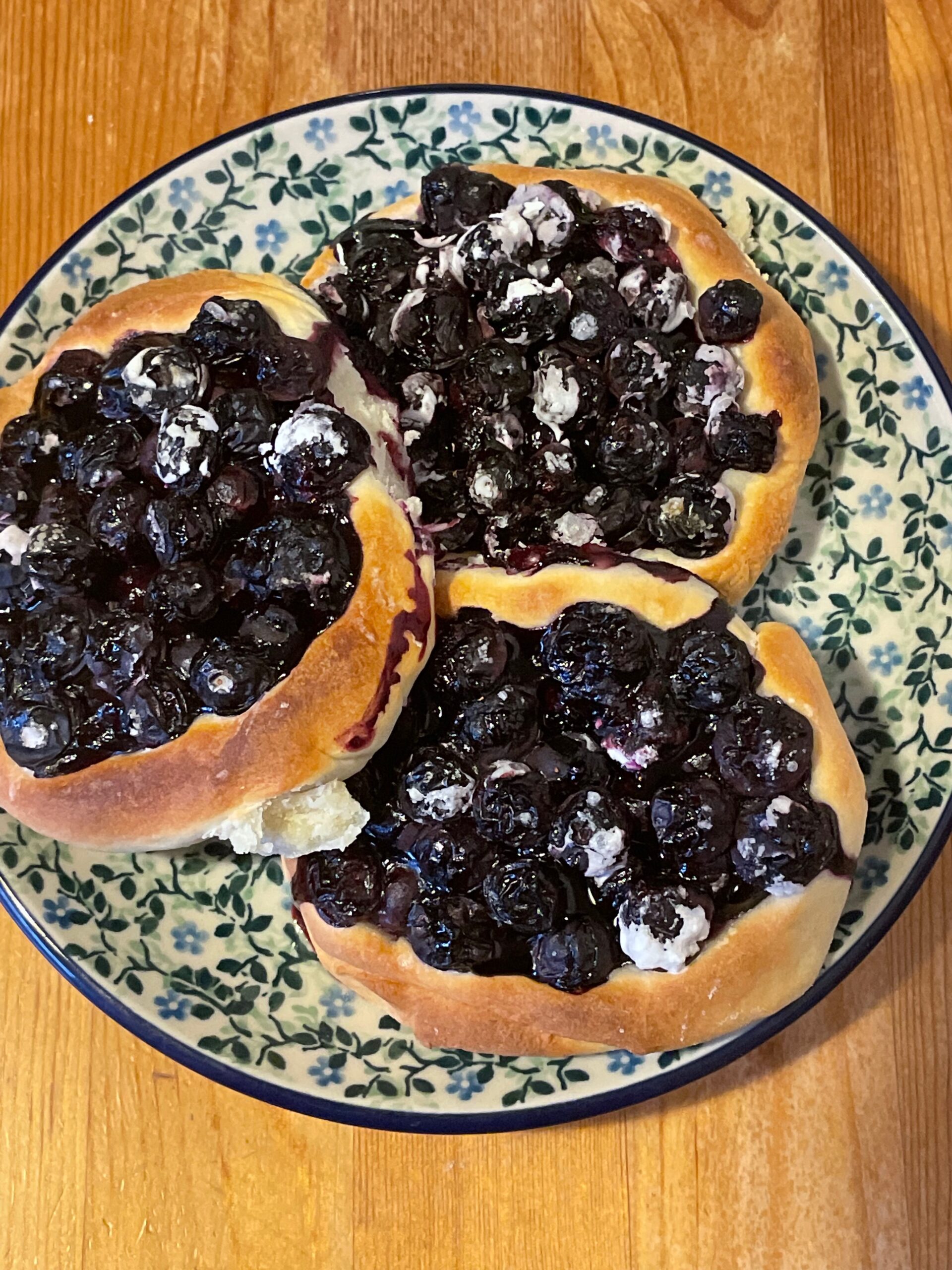
Hi! I wasn’t aware there can be so many items to be bought in Bali :))) Thanks for all the ideas 🙏🙏🙏